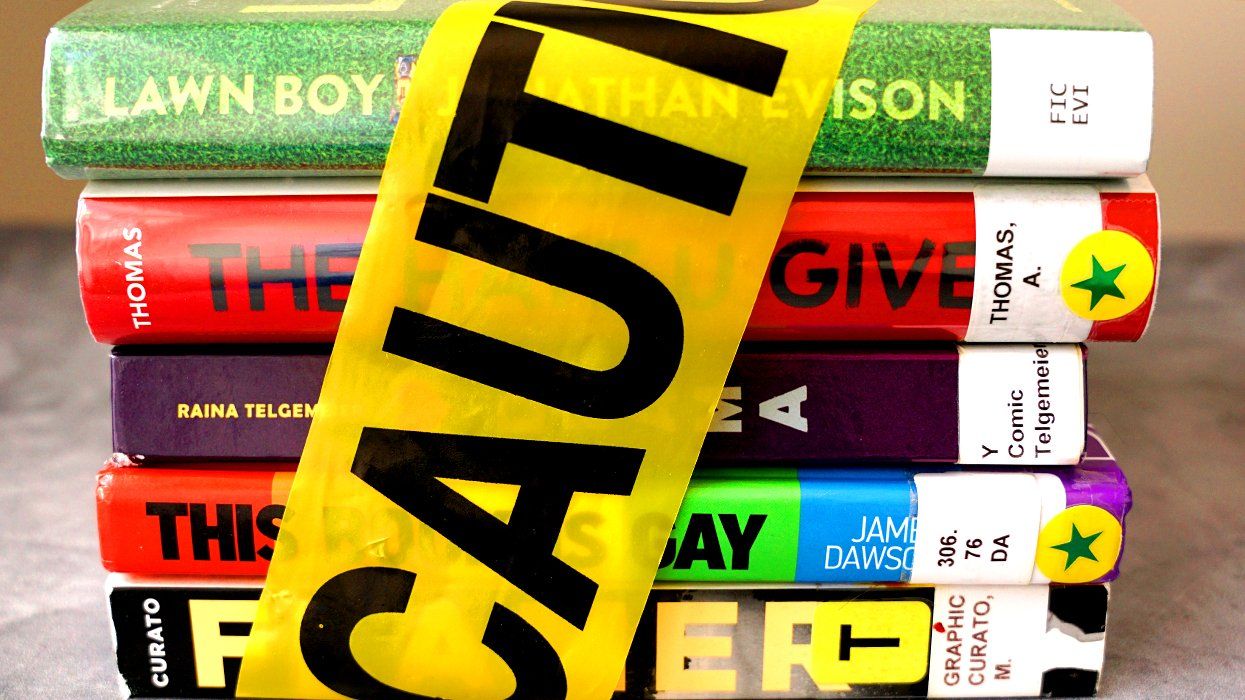News
Book ban attempts surge to record highs in 2023

Shutterstock
The number of titles targeted rose 65 percent over 2022, according to the American Library Association.
March 14 2024 11:19 AM EST
trudestress
By continuing to use our site, you agree to our Privacy Policy and Terms of Use.

The number of titles targeted rose 65 percent over 2022, according to the American Library Association.
Attempts at book censorship took a giant leap in 2023, with 4,240 titles targeted in schools and libraries nationwide — a 65 percent increase from 2022’s record of 2,571, according to a report released Thursday by the American Library Association.
There were 1,247 demands to censor books, with many targeting multiple titles, as documented by the ALA’s Office of Intellectual Freedom.
The ALA identified several key trends in 2023’s censorship efforts. Pressure groups focused on public libraries in addition to targeting school libraries. The number of titles targeted for censorship at public libraries increased by 92 percent over the previous year; school libraries saw an 11 percent increase. Groups and individuals demanding the censorship of multiple titles, often dozens or hundreds at a time, drove this surge.
Titles representing the voices and experiences of LGBTQ+ individuals and people of color accounted for 47 percent of those targeted.
There were attempts to censor more than 100 titles in each of these 17 states: Colorado, Connecticut, Florida, Idaho, Illinois, Iowa, Kentucky, Maryland, Missouri, North Carolina, Ohio, Pennsylvania, Tennessee, Texas, Utah, Virginia, and Wisconsin. There is an interactive map of challenges by state here.
“Every challenge to a library book is an attack on our freedom to read,” ALA President Emily Drabinski said in a press release. “The books being targeted again focus on LGBTQ+ and people of color. Our communities and our country are stronger because of diversity. Libraries that reflect their communities’ diversity promote learning and empathy that some people want to hide or eliminate. Libraries are vital institutions to each and every community in this country, and library professionals, who have dedicated their lives to protecting our right to read, are facing threats to their employment and well-being.”
"What's alarming to me is we're not seeing the numbers go down but go up," Drabinski said in a follow-up interview with The Advocate. It's hard to pinpoint why this is happening, but in an election year, many candidates are making book bans part of their platforms, she said.
"It's important to see these book ban efforts in the context of a broader assault on LGBTQ+ rights," added Drabinski, who is a lesbian. Indeed, "each attack on a book is an attack on a person or a whole group of people," she pointed out.
In response to the surge in book challenges, the ALA launched Unite Against Book Bans, a national initiative to in which readers everywhere can fight censorship. The coalition will mark its second anniversary during National Library Week, April 7-13. The ALA will release its list of the top 10 most challenged books in the U.S. April 8, which is Right to Read Day of National Library Week, along with its full State of America's Libraries Report.
“The reports from librarians and educators in the field make it clear that the organized campaigns to ban books aren’t over, and that we must all stand together to preserve our right to choose what we read,” Deborah Caldwell-Stone, director of the ALA’s Office for Intellectual Freedom, said in the release. “Each demand to ban a book is a demand to deny each person’s constitutionally protected right to choose and read books that raise important issues and lift up the voices of those who are often silenced. By joining initiatives like Unite Against Book Bans and other organizations that support libraries and schools, we can end this attack on essential community institutions and our civil liberties.”
In her interview, Drablnski likewise encouraged people to join Unite Against Book Bans and to make sure they have a library card and use it. "We need everybody who believes in libraries to make that commitment known," she said.
"I'm heartened by number of people talking about importance of libraries and reading," she added. "When we stand together, I know that we can win."
Trudy Ring is The Advocate’s senior politics editor and copy chief. She has been a reporter and editor for daily newspapers and LGBTQ+ weeklies/monthlies, trade magazines, and reference books. She is a political junkie who thinks even the wonkiest details are fascinating, and she always loves to see political candidates who are groundbreaking in some way. She enjoys writing about other topics as well, including religion (she’s interested in what people believe and why), literature, theater, and film. Trudy is a proud “old movie weirdo” and loves the Hollywood films of the 1930s and ’40s above all others. Other interests include classic rock music (Bruce Springsteen rules!) and history. Oh, and she was a Jeopardy! contestant back in 1998 and won two games. Not up there with Amy Schneider, but Trudy still takes pride in this achievement.
Trudy Ring is The Advocate’s senior politics editor and copy chief. She has been a reporter and editor for daily newspapers and LGBTQ+ weeklies/monthlies, trade magazines, and reference books. She is a political junkie who thinks even the wonkiest details are fascinating, and she always loves to see political candidates who are groundbreaking in some way. She enjoys writing about other topics as well, including religion (she’s interested in what people believe and why), literature, theater, and film. Trudy is a proud “old movie weirdo” and loves the Hollywood films of the 1930s and ’40s above all others. Other interests include classic rock music (Bruce Springsteen rules!) and history. Oh, and she was a Jeopardy! contestant back in 1998 and won two games. Not up there with Amy Schneider, but Trudy still takes pride in this achievement.
Charlie Kirk DID say stoning gay people was the 'perfect law' — and these other heinous quotes